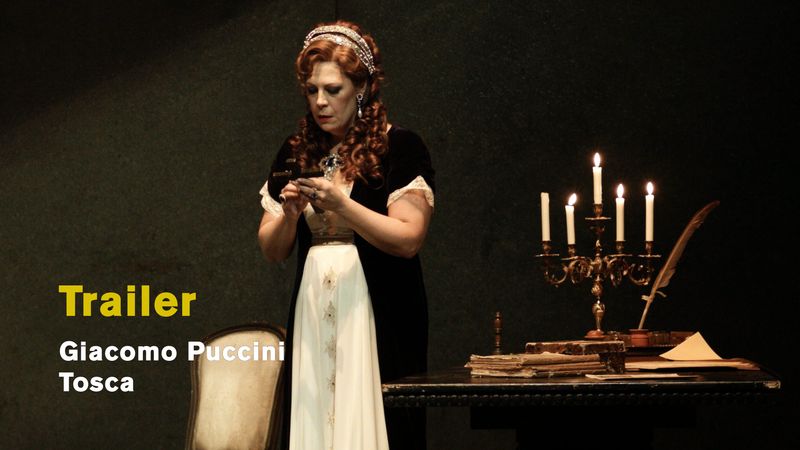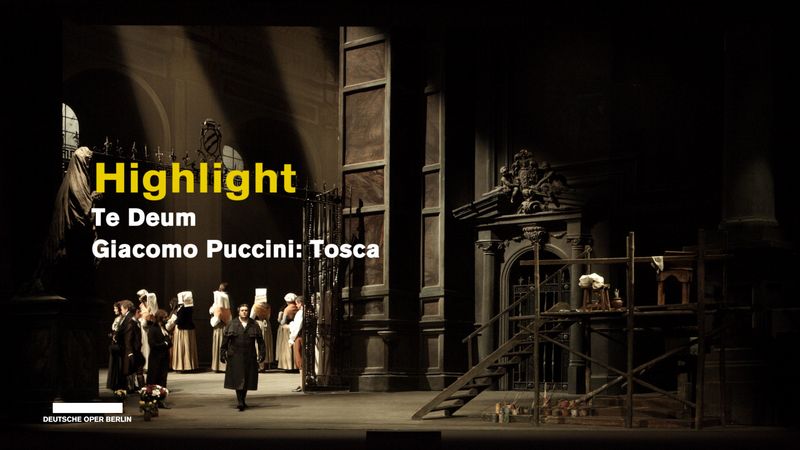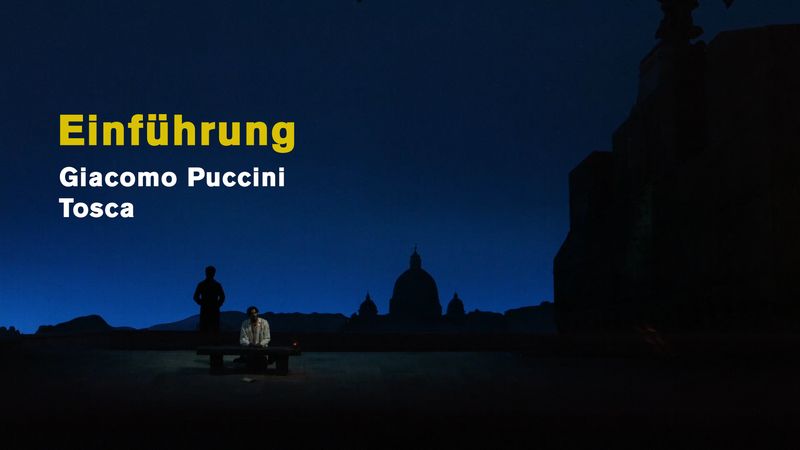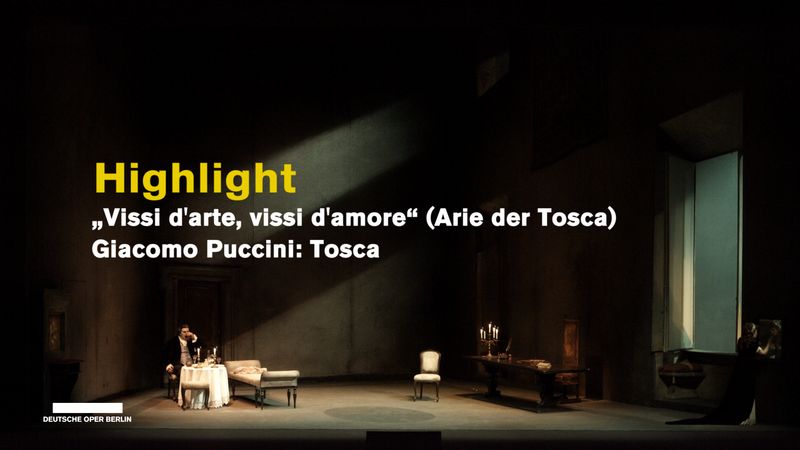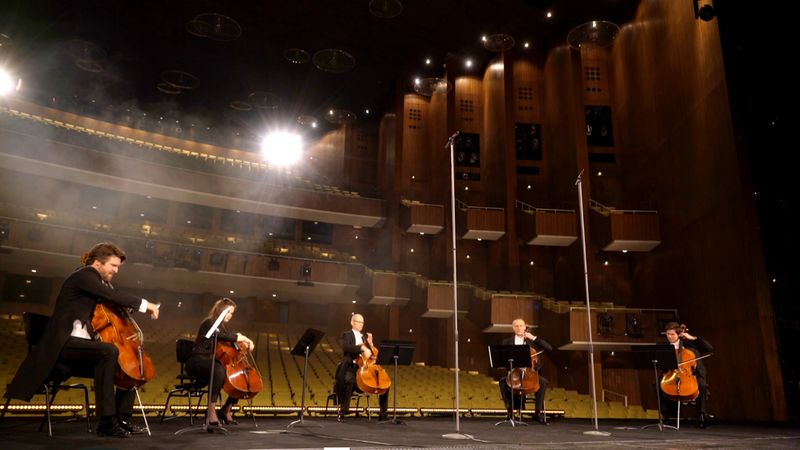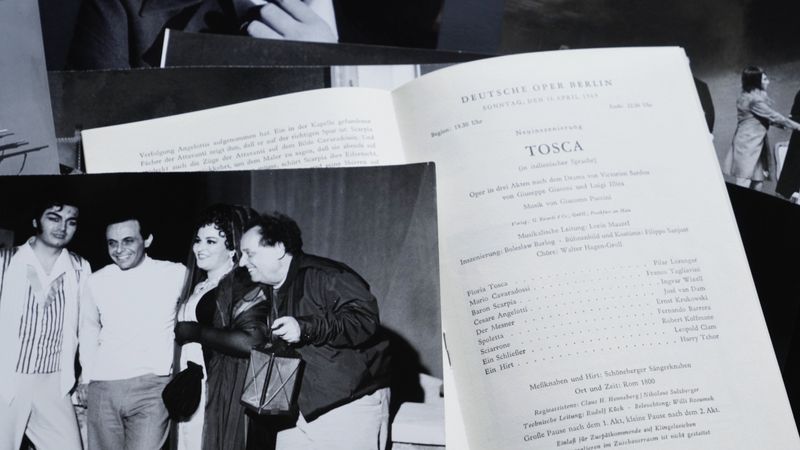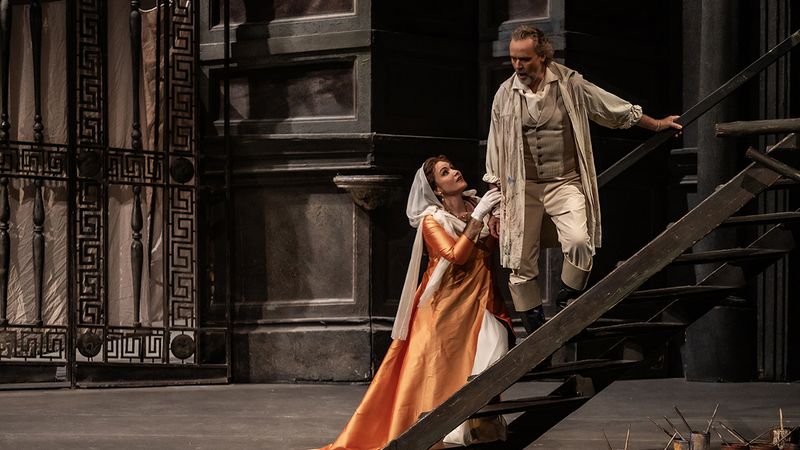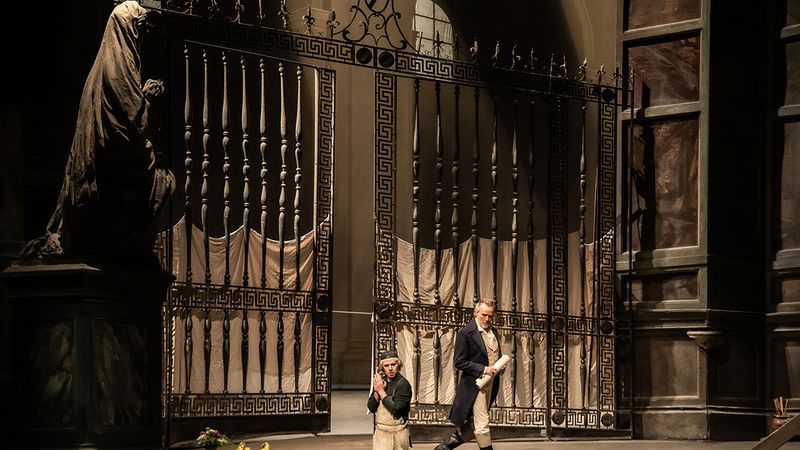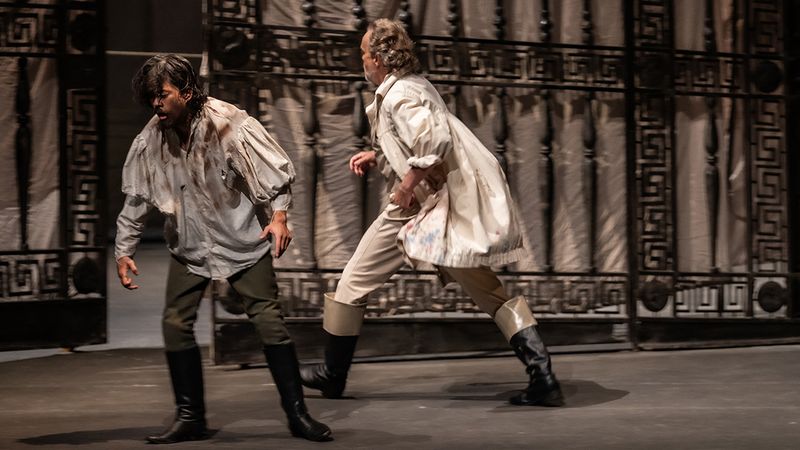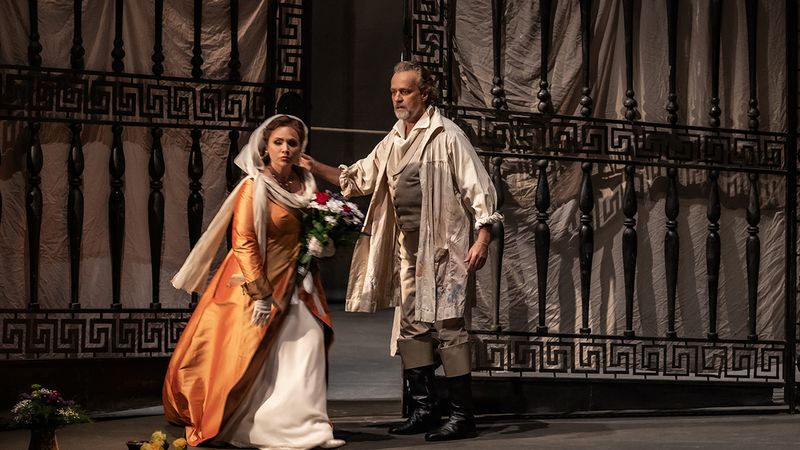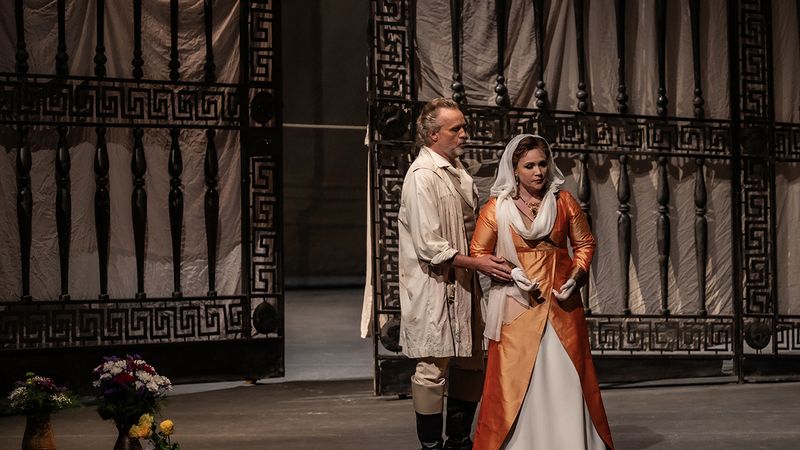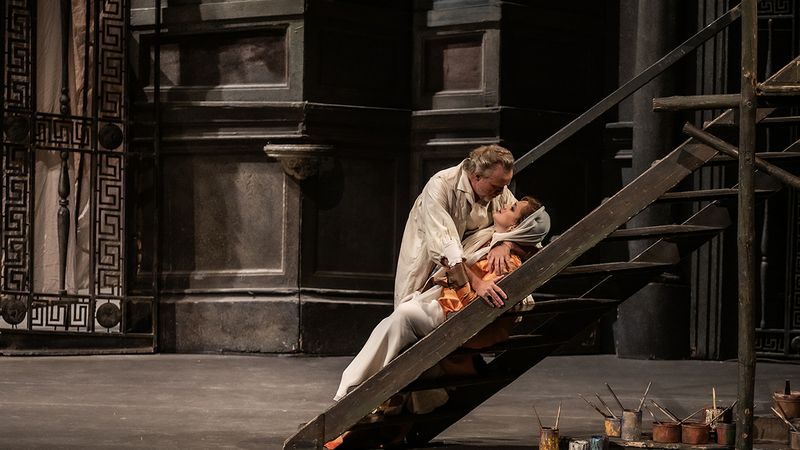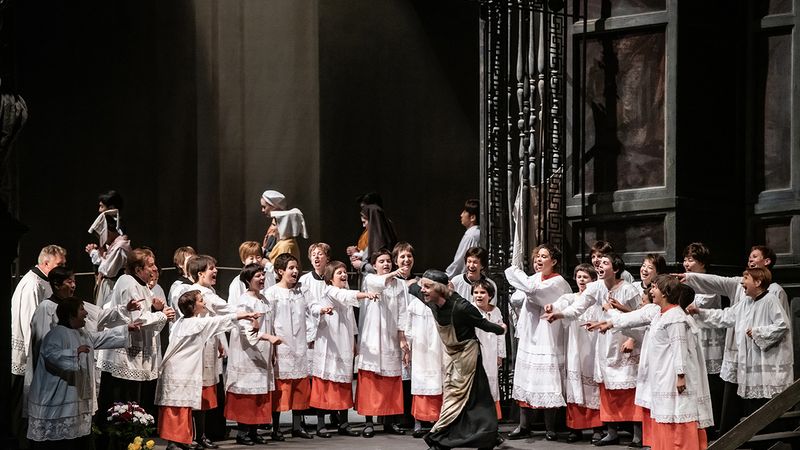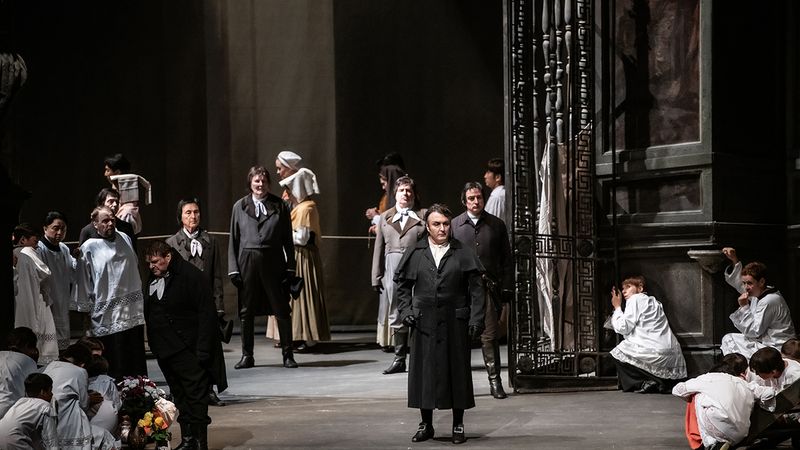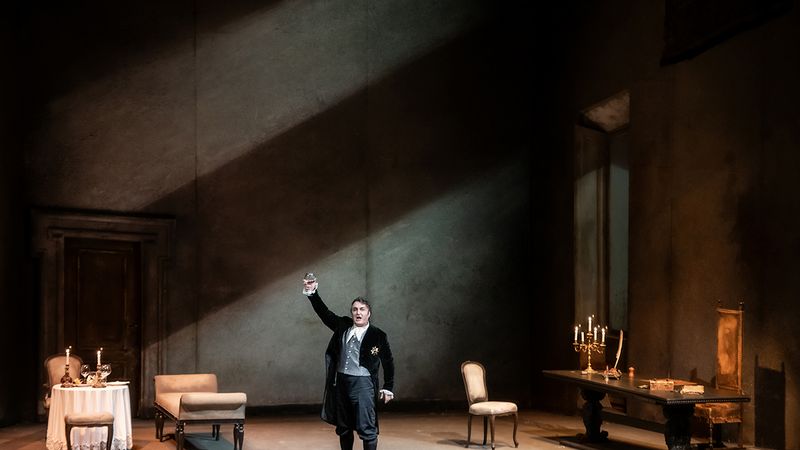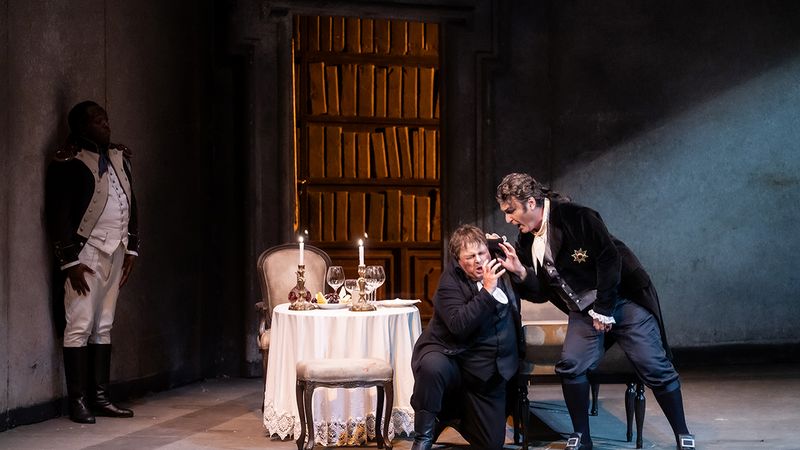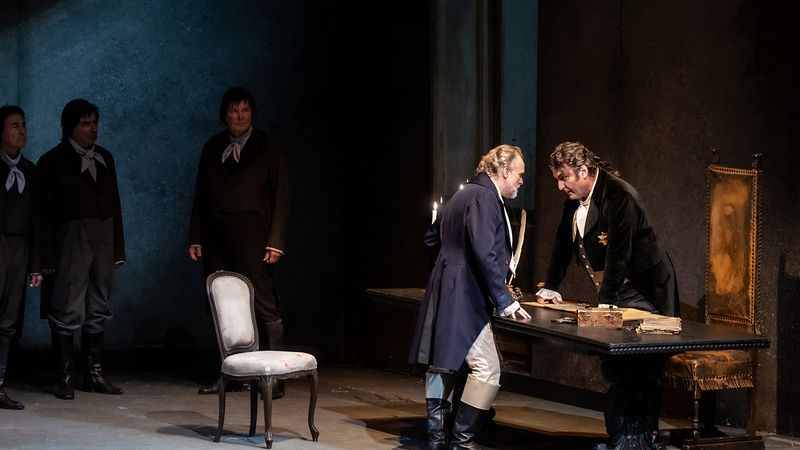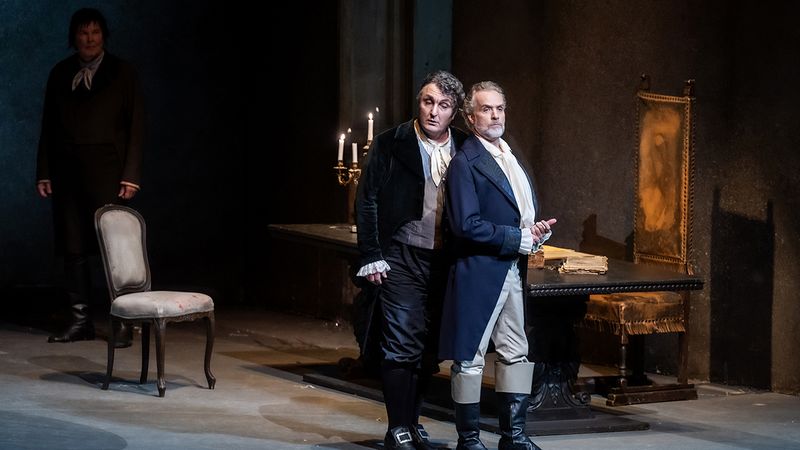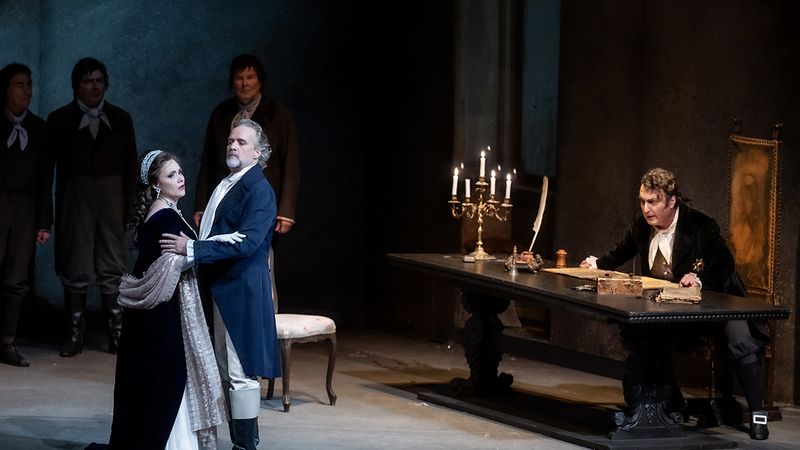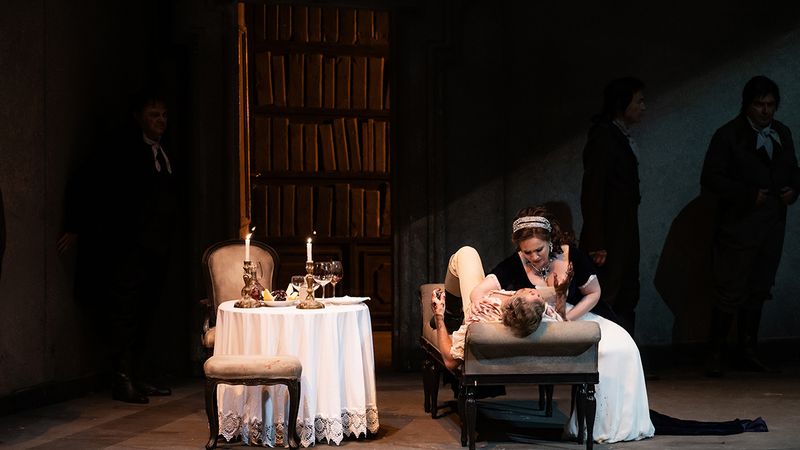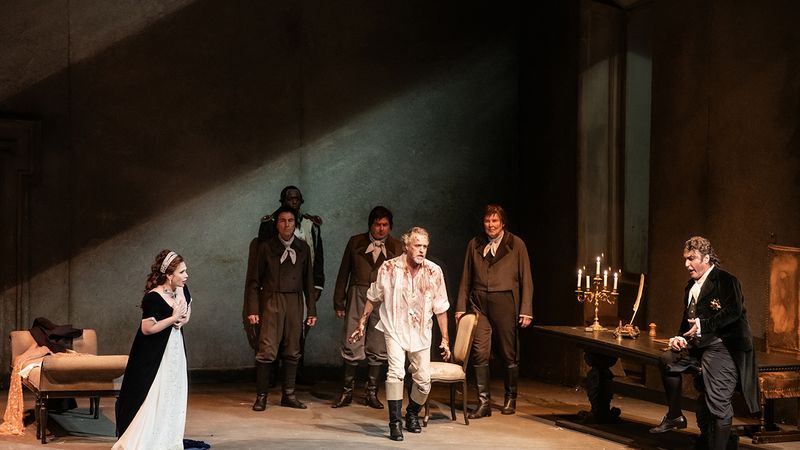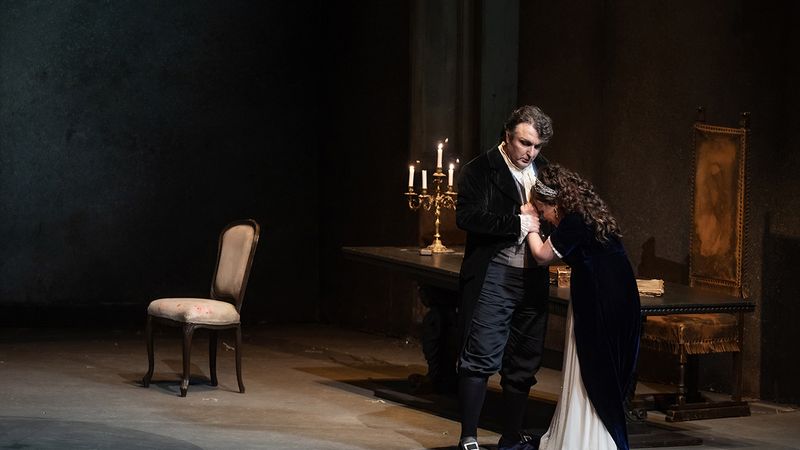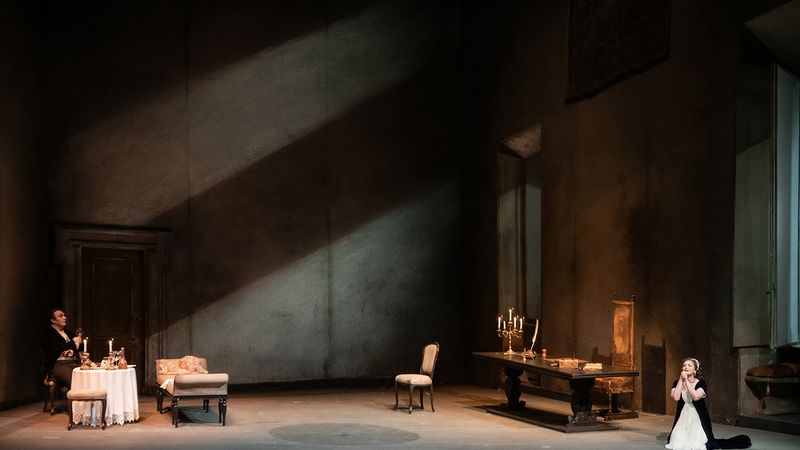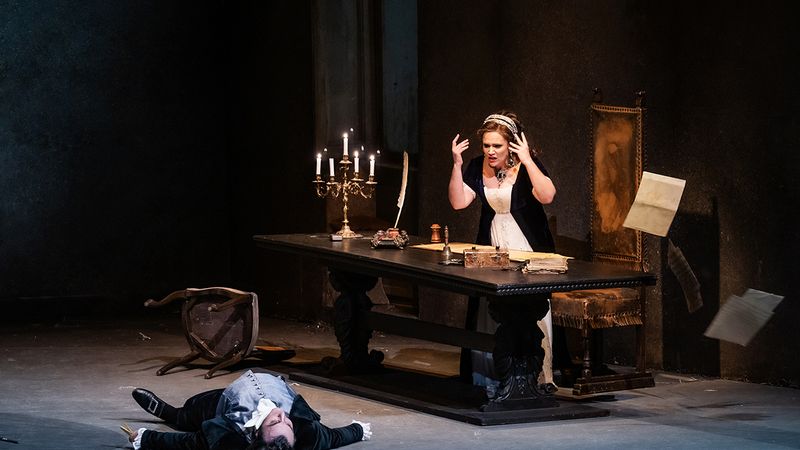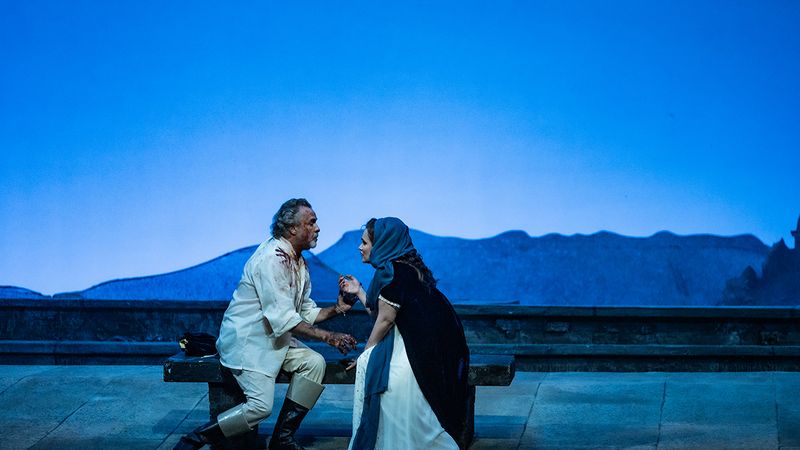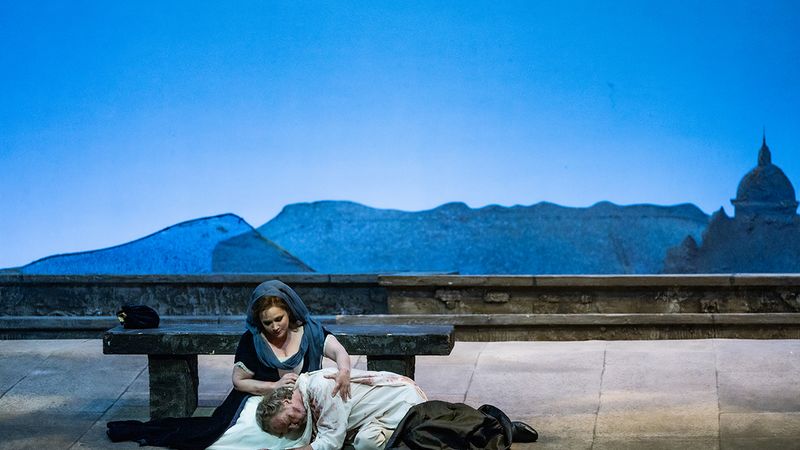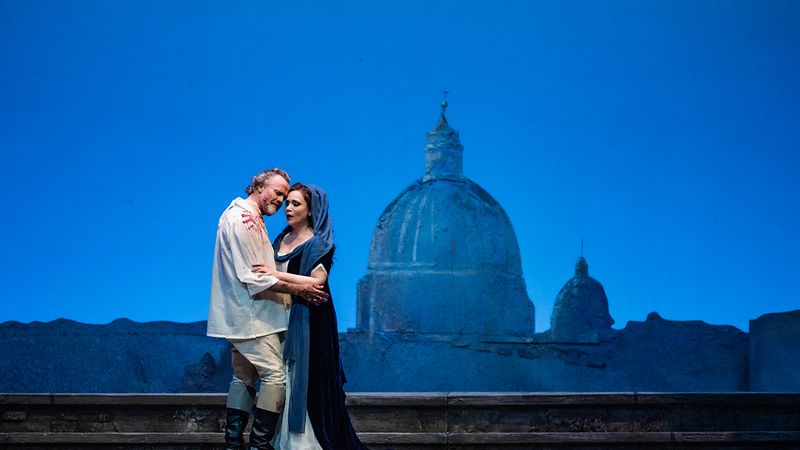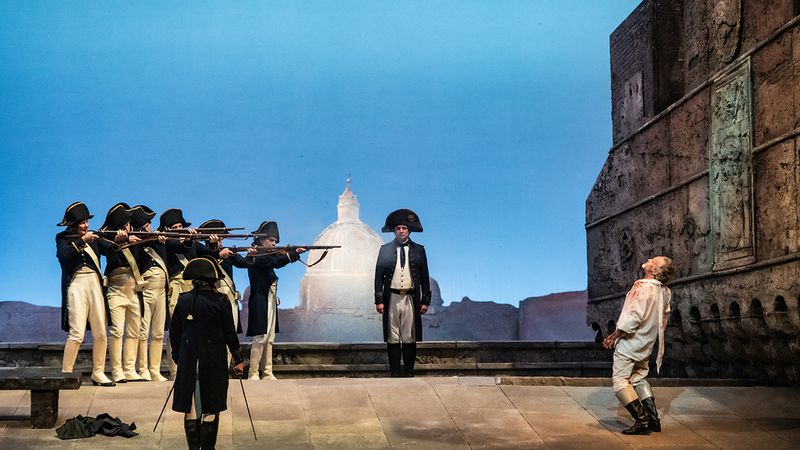Tosca
Sun, 23. June 2024, 19:30
Giacomo Puccini (1858 – 1924)
This TOSCA production is deserved of listed status after a performance history stretching back over half a century. Not that the atmospheric sets depicting the original locations in Rome - a timeless backdrop for great musical theatre - have lost any of their charm in over 400 performances of the work ... Conductor: Paolo Arrivabeni / Andrea Battistoni; Director: Boleslaw Barlog; With Carmen Giannattasio / Elena Stikhina / Camilla Nylund, Martin Muehle / Vittorio Grigolo, Ludovic Tézier / Gevorg Hakobyan / Erwin Schrott a.o.
About the workAs in all operas by Puccini, TOSCA is an illustration of how human attentiveness and pleasures of the palate can be mutually dependent if the composer’s artistic intentions become a benchmark for directorial interpretation. Puccini’s humane attentiveness is essentially dependent on an outcry and/or a sense of resignation. The pity inherent in his music does not content itself with abstract gestures; it wants to unsettle, to bring about change. Out of the “small things” named by Puccini as the source of his inspiration and the focus of his music “big things” grow – as long as we want them. Puccini’s choice of material owes something, directly or indirectly, to the spirit of Zola, Gorki and Hauptmann, and the link between that material and his compositional style places him likewise as a direct descendant of Verdi and an exponent of verismo. He was also known as an admirer of Wagner, although a Wagner imitator he assuredly was not.
It was more a case of a personal connection based on selected achievements of both composers. Grappling with the bundled subtleties of harmony and nuances of instrumentation, he still uncovered a voice from the orchestral cross-hatching and gave it an accompagnato that was considerably more fractured and refined than the radical and laconic Verdi was wonted to do. This is also a reflection of the aesthetic themes of TOSCA. The music exudes brutality, intelligence and exactitude but also tenderness, sentimentality and a dream-like quality. Puccini set great store on musical precision, social awareness, a tactical heroism, the poetics of the seemingly hum-drum, the contrast between aloofness and passionate involvement, and following his true north.
Scarpia, the police chief, Floria Tosca, a singer, and Cavaradossi, a painter, are all bent on achieving their own personal forms of liberty. Scarpia’s is all about asserting his idea of power; Cavaradossi’s is that of the freedom fighter seeking systemic change; Tosca’s is the release that comes with private, straightforward, unbounded love. At a pivotal time of major upheaval these urges assume a heightened significance. Depending on the stance that we see ourselves and Puccini in at that moment in time, TOSCA either remains a grisly love story or ends up as a portent of “freedom”. In any event, each of the three very different protagonists pay for their part in this triangular clinch with their lives. There is nothing redemptive about their deaths, which are grim, violent and definitive.
About the productionIn 1987 Götz Friedrich addressed Boleslaw Barlog’s straight production from 1969 with its stark, undemanding sets and delivered a version that took Puccini’s declared intentions literally: the mutual dependence of human attentiveness and pleasures of the palate is inspired by the music and becomes a springboard into the stage interpretation of the work.
Werkinfo:
Melodramma in 3 actsLibretto by Giuseppe Giacosa and Luigi Illica based on the drama LA TOSCA by Victorien SardouFirst performed on 14th January 1900 in RomePremiered at the Deutsche Oper Berlin on 13th April 1969
Recommended from 13 years on

